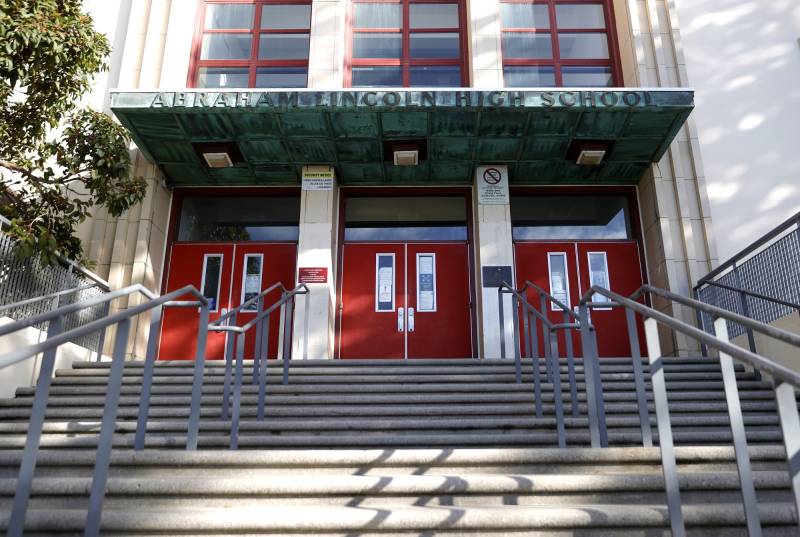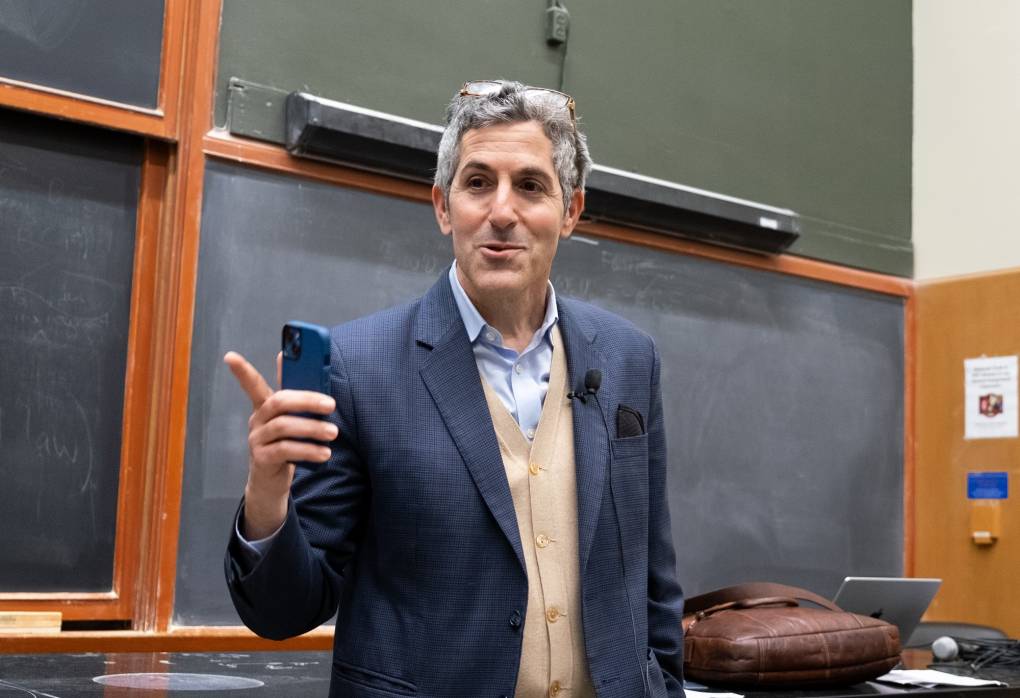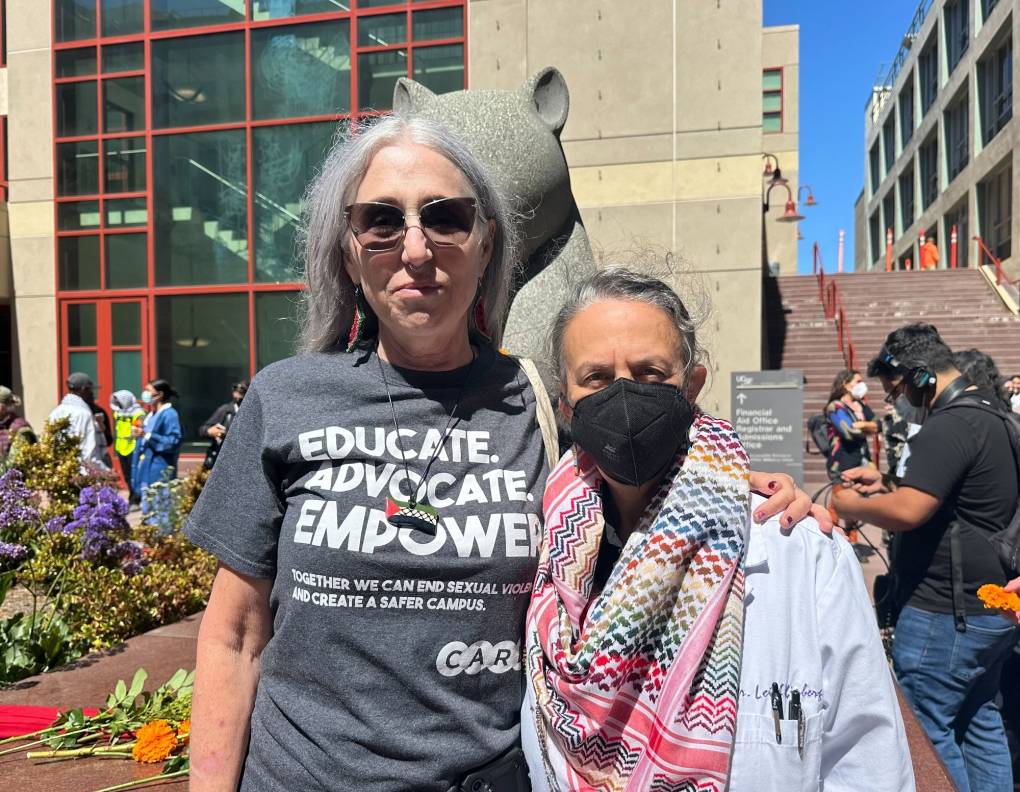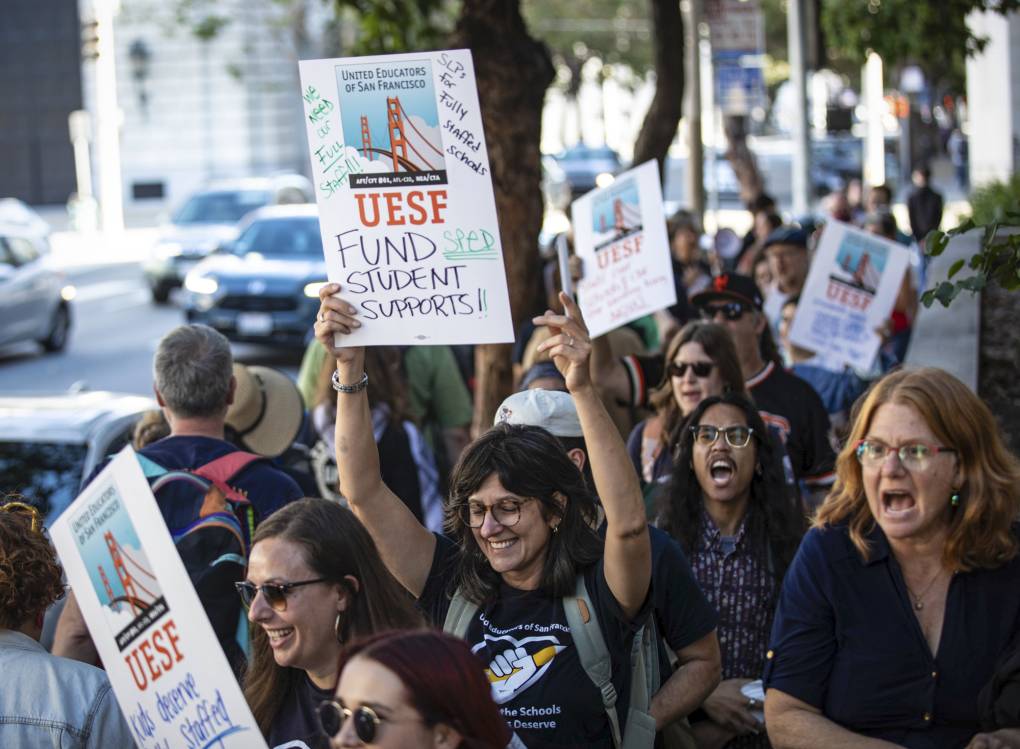“We thought that it was really important to have training about Jewish identity in a multicultural society led by Jews,” David said. “Being a Jewish student in the middle of a really charged political time has brought unique challenges to our school and to our students, and to our educators and our parents.
“This training is just about educating people on what the Jewish identity is and our experiences.”
David said she and a small group of other Jewish parents and staff reached out to the American Jewish Committee, one of the oldest Jewish advocacy organizations. The nonprofit agreed to provide the workshops at no cost to the district.
Parent Lee Filner pointed out that the AJC was chosen by the Biden administration to lead the national effort against antisemitism.
“There have just been too many antisemitic incidents in the district,” Filner said. “It’s leading a lot of parents I personally know to flee the district for private school, and we just can’t afford to lose more students from the district. Especially in this budget situation, because we’ve created a hostile environment for students just because of who they are.”
An email announcing the workshops reached a group of Jewish parents and political organizers who are critical of Israel. Alex Lantsberg, a Jewish parent of students at two of the high schools on the workshop list, said he was shocked and dismayed when he learned about the AJC-led training.
“Educating people on antisemitism is absolutely imperative in this time when antisemitism is being used to justify an ongoing genocide,” he said. “If SFUSD wanted to actually assist its faculty and staff, it would be best to do so in a way that actually recognizes the multiple strands of Jewish thought regarding the question of antisemitism and how all of these things come together.”
Parents of Palestinian students in the district, like Sonya Awwad, questioned how closely the AJC’s values align with San Francisco’s.
“This is a group that openly opposes a cease-fire in this war and does not have a neutral position in the conflict,” she said. “And San Francisco did vote on a resolution for a cease-fire, so that in itself seems conflicting.”
Progressive groups affiliated with SFUSD, like the Arab Resource Organizing Committee, the Council on American-Islamic Relations and Jewish Voices for Peace, criticized the workshop. The groups called for the district to hold a similar training about Islamophobia or anti-Palestinian sentiment, which they said is also on the rise, according to a joint press release.
Last year, Awwad and a small group of parents met with administrators to discuss the war’s impact on their children. Awwad said parents described bullying, racism and isolation plaguing students, particularly those with family in Gaza.




